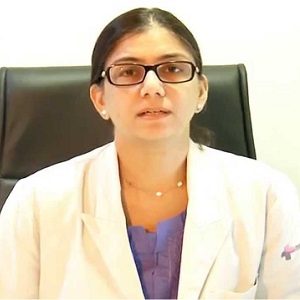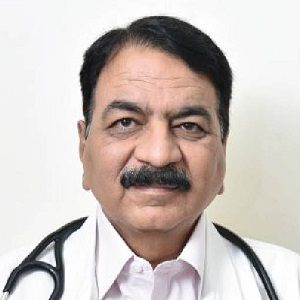Best Doctors in India for Alcoholic Hepatitis Treatment
- Endocrinology, Paediatric, Paediatric & Adolescent Endocrinology, Gurugram, New Delhi, India
- 15 + years’ experience
- Artemis Hospital, Gurgaon
Profile Highlights:
- Dr. Sumeet Arora is a distinguished Senior Consultant specializing in Pediatric and Adolescent Endocrinology at Artemis Hospitals, Gurugram.
- With an exceptional educational and clinical background, Dr. Arora is American Board Certified in both Pediatric Endocrinology and Pediatrics, reflecting her dual expertise in managing complex endocrine disorders in children and adolescents.
- Her impressive credentials include an MBBS from Kasturba Medical College, Manipal University, and an MD in Pediatrics from the University of Tennessee College of Medicine, Chattanooga.
- Gynecologist, Gynae-Oncologist, Gurugram, India
- Over 18 years’ experience
- Medanta-The Medicity, Gurgaon
Profile Highlights:
- Dr. Dimple K Ahluwalia is one of the prominent Gynae-oncologists at Medanta-The Medicity at Gurugram in India.
- She has years of experience in treating serious and critically ill patients from different parts of the country.
- She has won numerous awards and honors for her countless contributions to the field of medicine.
- Gynecologist, Gynae-Oncologist, Gurugram, India
- over 22 years’ experience
- Medanta-The Medicity, Gurgaon
Profile Highlights:
- Dr. Priyanka Batra is one of the best doctors in India in the Department of Gynaecology and Gynae Oncology.
- Her expertise extends to the subspecialties of laparoscopic surgeries, colposcopy, and minimally invasive surgeries.
- She is a highly qualified doctor and has done multiple diplomas in the specialization of Gynae Oncology.
- Gynecologist, Gynae-Oncologist, Gurugram, India
- Over 20 years’ experience
- Medanta-The Medicity, Gurgaon
Profile Highlights:
- Dr. Shradha Chaudhari is an eminent name in the Department of Gynaecology and Gynae Oncology.
- She has made an enormous contribution to the upliftment and improvement of the treatment quality of gynecological patients suffering from oncological conditions. She has done multiple certificate degrees pertaining to her specialization, which adds to her expertise.
- Endocrinologist and Diabetologist, Gurugram, India
- Over 20 years’ experience
- Medanta-The Medicity, Gurgaon
Profile Highlights:
- Dr. Jasjeet Singh Wasir has been the Director and Consultant at the Department of Endocrinology and Diabetology in Medanta-The Medicity Hospital in Gurugram.
- Under the umbrella and guidance of Dr. Ambrish Mithal, he has been an expert doctor treating patients suffering from PCOD, obesity, and thyroid disorders.
- Dentist, Gurugram, India
- Over 25 years’ experience
- Medanta-The Medicity, Gurgaon
Profile Highlights:
- Dr. Vandana Sehgal is a renowned Dentist, who has more than 25 years of experience in treating Indian patients who are having dental problems.
- She has expert hands in Periodontology, Implantology, and General Dentistry.
- She is an eminent member of the Indian Dental Association and Academy of Oral Implantology.
- Plastic, Aesthetic and Reconstructive Surgeon, Gurugram, India
- 25 + years’ experience
- Medanta-The Medicity, Gurgaon
Profile Highlights:
- Dr. Aditya Aggarwal is a distinguished plastic surgeon with a career spanning over 25 years, currently serving as the Vice Chairman of the Department of Plastic, Aesthetic, and Reconstructive Surgery at Medanta The Medicity.
- Dr. Aggarwal’s expertise in cosmetic and reconstructive surgery has earned him both national and international acclaim.
- Dr. Aggarwal’s medical journey began with training at the prestigious IMS BHU Varanasi and KGMC Lucknow (now KGMU), followed by advanced fellowships in Taiwan, Japan, the United Kingdom, and Germany.
- Dentist, Gurugram, India
- Over 20 years’ experience
- Medanta-The Medicity, Gurgaon
Profile Highlights:
- Dr. Ritu Sharma has a full-time experience of two decades in the area of Conservative Dentistry and Endodontics.
- Her tremendous efforts in Root Canal Treatment and surgery pushed her to be one of the best dental surgeons in India.
- She has extensive research papers related to Smile Design and Cosmetic Surgery, which has helped numerous patients get back to their regular stream of life.
- Cardiologist, Gurugram, India
- Over 24 years’ experience
- Artemis Hospital, Gurgaon
Profile Highlights:
- Dr. (Col) B Kalra is one of the best cardiologists in Gurugram, with nearly two decades of experience in Cardiology.
- Due to different pieces of training, Dr. Balbir Kalra has accomplished expertise in Clinical, Invasive, and Non-Invasive Cardiology.
- Interventional Cardiologist, Gurugram, India
- Over 15 years’ experience
- Fortis Memorial Research Institute
Profile Highlights:
- Dr. Ashish Gupta is a renowned cardiologist in Gurugram with expertise in noninvasive and interventional cardiac procedures.
- He performed several life-saving primary angioplasties in acute heart attacks, complex heart interventions, and ICD/ CRT/ pacemaker implantations with a high success rate.
- Some of the services available with the doctor include PET scan, Nuclear Thallium Test, TMT, Holter monitoring, echocardiography, etc.
Best Hospitals in India for Alcoholic Hepatitis Treatment
ALCOHOLIC HEPATITIS
Alcoholic hepatitis is a liver infection, which is mainly caused by frequent, heavy use of alcohol. Fat can build up in the liver cells, which might lead to inflammation as well as scarring of the liver.
Alcoholic hepatitis might be mild or severe. A patient might even need a liver transplant if proper treatment is not provided, or if they don’t stop consumption of alcohol.
It is also notable that all heavy drinkers don’t develop this condition, and sometimes this condition even develops in people who drink moderately. However, if you are diagnosed with this condition, it is important for you to quit drinking alcohol. People who continue drinking alcohol might face a huge risk of serious liver damage as well as death.
Symptoms
Depending on the amount of damage to the liver, the symptoms can vary. If you are having a mild form of the disease, you might not even experience any symptoms at all. However, as the damage continues to grow, you might experience the following:
- Changes in appetite
- Dry mouth
- Weight loss
- Pain or swelling in the abdomen
- Jaundice, or yellowing of the skin or eyes
- Fever
- Nausea and vomiting
- Easy bleeding or bruising
- Changes in your mental state, including confusion
- Fatigue
The symptoms of this condition are similar to those caused by a few other health conditions. Therefore, if you develop any of these symptoms, it is best to get a proper diagnosis as well as begin treatment.
Causes & risk factors
Alcoholic hepatitis generally develops when the alcohol you drink causes damage to your liver. However, it is not clear why alcohol does this damages only to some heavy drinkers.
Few factors that are known to play a role in this condition include:
- The body’s process that breaks down alcohol produces some toxic chemicals
- These chemicals can trigger inflammation that can destroy the liver cells
- Thus, over time, scars replace healthy liver tissue, thus interfering with the function of the liver
- This irreversible scarring, which is also termed cirrhosis, is the final stage of alcoholic liver disease
If you have hepatitis C and continue to drink, even moderately, you are more likely to develop cirrhosis.
Some heavy drinkers are also malnourished because they don’t eat a proper balanced diet. Alcohol and its byproducts also prevent the body from absorbing nutrition properly. Lack of nutrition can contribute to liver cell damage.
Some other risk factors that can lead to this condition include:
- Your sex- Women are usually at a higher risk of developing alcoholic hepatitis since the way alcohol is processed in women is different.
- Binge drinking- Having over five drinks within two hours for men and four or more for women can increase the risk of alcoholic hepatitis.
- Obesity- Heavy drinkers who are overweight are also more likely to develop alcoholic hepatitis and to progress from that condition to cirrhosis.
- Race and ethnicity- Hispanic and Negroid people might be at higher risk of alcoholic hepatitis.
- Genetic factors- According to studies, there may be a genetic component in alcohol-induced liver disease. However, it is difficult to separate genetic and environmental factors.
Diagnosis
If you are showing symptoms of alcoholic hepatitis, your doctor will first inquire about your medical history and alcohol consumption. Next, he/she will perform a physical exam to see if you have an enlarged liver or spleen. They might also need a few more tests to confirm your diagnosis, such as:
- Complete blood count (CBC)
- Liver function test
- Ultrasound of the liver
- Abdominal CT scan
- Blood clotting tests
In some cases, a liver biopsy might also be needed to confirm the diagnosis of alcoholic hepatitis. A liver biopsy requires your doctor to remove a tissue sample from your liver, which is then tested in the lab. This method helps to show the severity and type of liver disease.
Treatment
Stopping alcohol consumption is the most important treatment for alcoholic hepatitis. There is no cure for this condition, but treatment can help in reducing or eliminating symptoms, or stopping its progression.
It is also important to note that scarring of the liver is permanent, but treatment can aim to restore as much function as possible.
Dietary changes
Medication
Liver transplant
The best hope of recovery is to be aware of the signs and symptoms as well as to reduce, manage, or if possible, completely stop consumption of alcohol.
Complications
Alcoholic hepatitis might lead to severe other complications such as:
- Enlarged veins (varices)- In this condition, blood that is unable to flow freely through the portal vein, can back up into other blood vessels in your esophagus or stomach.
- Hepatic encephalopathy- This condition can be caused by the buildup of toxins if your damaged liver is unable to remove all the toxins from your body. It involves confusion, drowsiness, and slurred speech.
- Ascites- Ascites is a condition in which the fluid that accumulates in the abdomen may get infected and thus, require treatment with antibiotics. Although this condition is not life-threatening, it can be a sign of advanced alcoholic hepatitis, or cirrhosis.
- Kidney failure- A damaged liver affects blood flow to the kidneys, thus resulting in kidney failure.
- Cirrhosis- The scarring of the liver might lead to liver failure.
Prevention
Alcoholic hepatitis might be prevented if you take the following steps:
- Drink alcohol in moderation, if at all- For healthy adults, moderate drinking means no more than one drink a day for women of all ages and men older than 65, and not over two drinks a day for men aged 65 and younger. However, if you prevent all alcohol, it is a certain way to prevent this condition.
- Check before mixing medications and alcohol- Ask your doctor if it’s safe to drink alcohol while you are taking medications. Consider reading the warning labels on over-the-counter medications as well. Don’t drink alcohol when you are taking medications that warn of complications when combined with alcohol.
- Protect yourself from hepatitis C- Hepatitis C is an infectious liver disease that is caused by a virus. If it is left untreated, it may lead to cirrhosis. If you are having hepatitis C and you consume alcohol, you’re generally more likely to develop cirrhosis than if you don’t drink.















